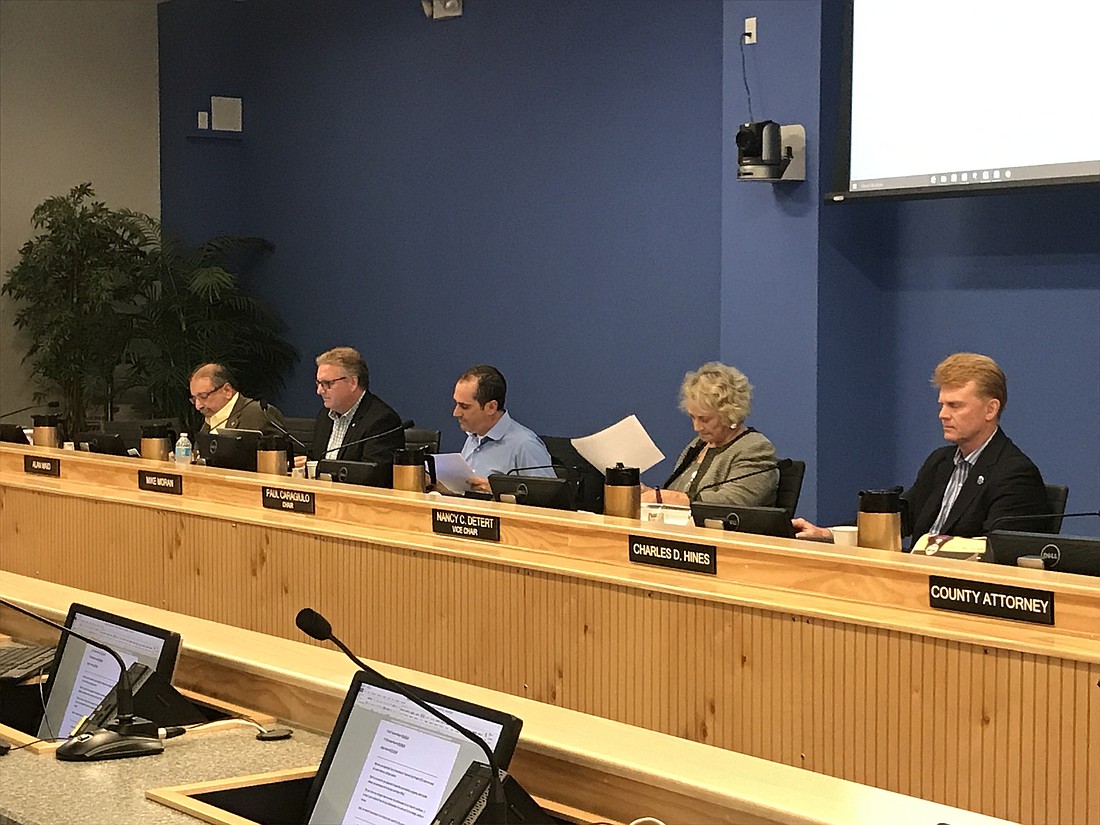- April 16, 2024
-
-
Loading

Loading

County leaders continue to face a long-term budget crunch as they attempt to provide services while maintaining a millage rate that has been level for more than five years.
At a pair of workshops Tuesday and Wednesday, the County Commission examined the preliminary budget for fiscal year 2018-19. In addition to discussing the $1.2 billion budget, county staff also laid out a plan for the next several years — and contingencies in case two referendums pass in November.
The county has budgeted for its $306 million general fund to be balanced in fiscal year 2019 regardless of whether the property tax referendums pass. But if they do pass, the county is facing a $742,000 shortfall in 2020 and multimillion dollar deficits beginning in 2021.
Earlier this year, the county identified $5.4 million in general fund expenditure reductions. The board has said it wants to prioritize the expansion of reserve funds set aside in case of economic uncertainty. For the county to do the latter — and stick to its pledge to maintain the 3.39 millage rate — it will have to identify new sources of revenue or further reduce future expenditures.
Countywide taxable values are expected to rise 7% over last year to $58.4 billion. That figure is still more than $4 billion less than the peak in 2008. Staff said the county would not collect taxes on most construction beginning this year until at least 2021 — a point Commissioner Al Maio wanted emphasized during a period of growth.
“People need to have that reinforced,” Maio said. “They see all the new construction, and they’re believing all the total gross assessed values are way over anything they’ve ever been — when we’re actually still 7% below ’08.”
Commissioner Charles Hines, who will leave office in 2020 because of term limits, said he wanted the county to continue to be aggressive about setting aside reserve funds for a future economic downturn. He asked his fellow commissioners to be frank with constituents seeking improved levels of service throughout the county, stating the board is in a position where it has to make tough decisions about the allocation of resources.
He recalled joining the commission in 2012, as the county was emerging from the recession, and said the government was able to sustain itself because of earlier savvy planning.
“I would sure hate to leave the next group in a very tough situation,” Hines said. “When I came into office, luckily, we had that $60 million to spend because that economic uncertainty fund was grown during good economic times.”
On Wednesday, staff scrutinized the proposed budgets for specific departments. That included the Sarasota County Sheriff’s Office, whose $115.9 million preliminary budget is still variable.
Sheriff Tom Knight attributed the uncertainty to Sarasota County Schools, which is in the process of setting up its own independent police force. Knight said he still did not know what, exactly, the school district’s needs would be headed into the 2018-19 school year, and he expressed frustration at his perceived lack of dialogue with the school board.
“My main concern … is that that phone is going to ring two weeks before school, and I’m going to have to pull deputies out of residential zones and onto campuses,” Knight said.
Several county commissioners said they did not want to commit financial support to the school district’s security plan until the sheriff had a meeting with the school board.
“If they want any participation from us inside this budget, inside the sheriff’s budget, they need to sit down and talk to our duly elected sheriff, period,” Maio said.
Asked if he supported the school district’s plans for the next school year, Knight said he still had issues with the allocation of security personnel. Although he hoped the situation could be clarified by meeting with the school board, he negatively characterized his relationship with Superintendent Todd Bowden.
“Every time I hang up the telephone with the superintendent, the message that goes out to the community and his board members are different,” Knight said.
This article has been edited to correct the county’s budget projections for fiscal year 2020 and beyond.